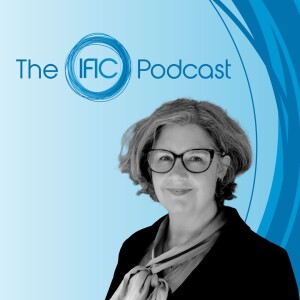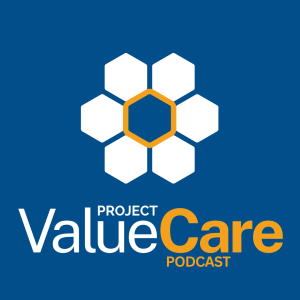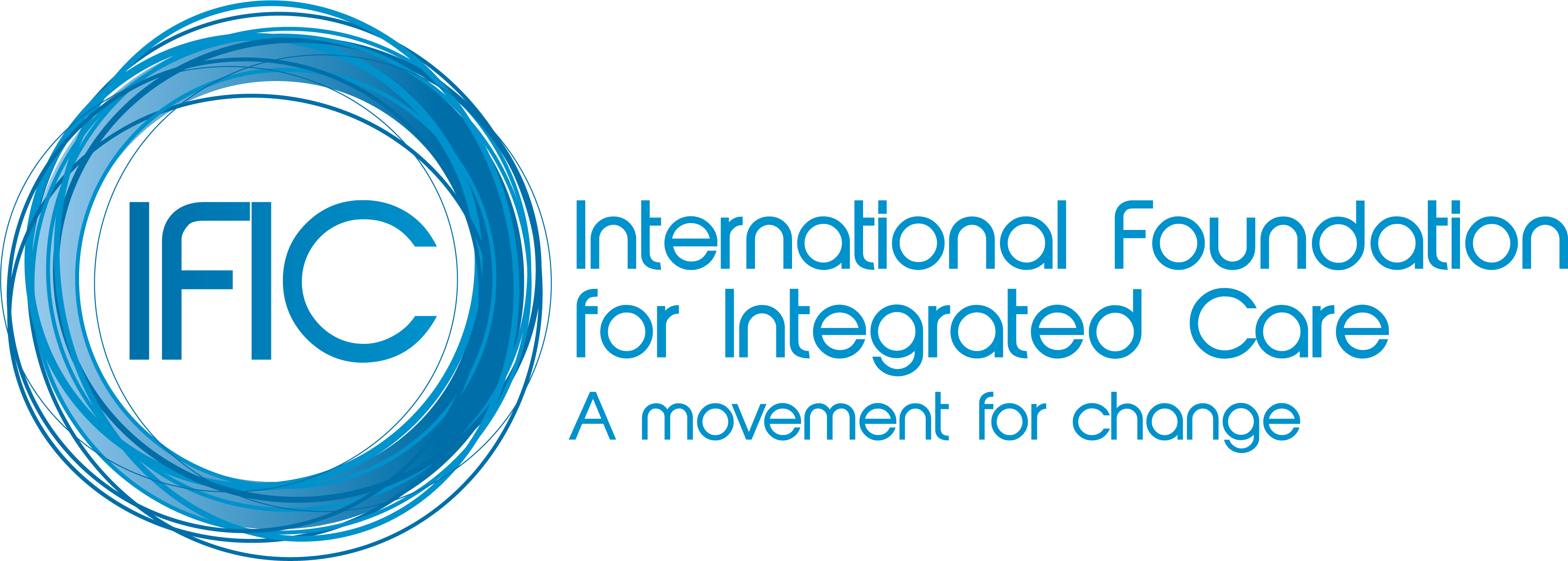The IFIC Podcast
The International Foundation for Integrated Care has defined nine pillars of integrated care based on the evidence accumulated over the last 2 decades. One of those pillars is Aligned Payments that Promote Integration. This is a difficult subject to understand particularly for policymakers, service managers and health and care professionals working in systems trying to implement integrated care who are not financing and payment experts. This short podcast series features our Chief Executive Dr Niamh Lennox-Chhugani in conversation with four leading practitioners who have been researching and designing new payment models around the world. They demystify the language of payment models and the different models we see emerging in different countries.
Episodes

Monday Apr 07, 2025
Monday Apr 07, 2025
In this episode of the International Foundation for Integrated Care's podcast series, 'Measuring the Impact of Integrated Care,' Niamh Lennox-Chhugani, is joined by Dr Jason Cheah, Deputy Group CEO (Strategy, Planning and Resourcing) of the National Healthcare Group (NHG) and the CEO of Woodlands Health (WH). He is also Adjunct Professor at the LKC School of Medicine.
Dr Cheah oversees cluster-wide strategy, finance, communications, resourcing and planning functions in NHG. These include driving financial and systemic changes within the Group towards accountable care, implementing capitation design, cost management, and workforce transformation. He also oversees and drives the organisational transformation roadmap and implementation plans for NHG, while also working to strengthen the organization's culture and identity.

Tuesday Apr 01, 2025
Tuesday Apr 01, 2025
In this episode of the International Foundation for Integrated Care's podcast series, 'Measuring the Impact of Integrated Care,' Niamh Lennox-Chhugani, is joined by David Harrison, an experienced accountant in the UK's health and social care system and Treasurer of IFIC's board.
David has a public-sector management, economics and commercial background. He is a qualified chartered accountant and MBA who, since qualifying, has worked extensively in the public and private sectors.
David’s advisory work on integrated care dates back to 2016. He is designated as one of NHS England’s integrated care “subject matter experts”, having been deployed in several roles, from policy developer to implementor, by NHS England to support and accelerate the adoption of integrated care in England.
Most recently, David spent four years as chair of a substantial, employee-owned social enterprise, delivering a mix of community health services and primary care services.
Key Moments
In this podcast episode hosted by the International Foundation for Integrated Care, Neve Cahill converses with David Harrison, covering key discussions on measuring the impact of integrated care.
[02:35]They explore the transition to integrated care in England, the collaboration challenges between various health and social care organizations, and the importance of developing impact and outcome frameworks.
[08.33] Harrison highlights the necessity of senior leadership engagement, planning collaboratively to align institutional performance with system-level goals, and fostering trust among partners.
[14:10] How can integrated care systems isolate what improvements are necessary.
[21:40] The importance of collaborative planning so action can be taken early, instead of trying to understand problems when reviewing measurements after the fact.

Tuesday Mar 25, 2025
Tuesday Mar 25, 2025
In this episode of the International Foundation for Integrated Care's podcast series, 'Measuring the Impact of Integrated Care,' Niamh Lennox-Chhugani, is joined by Dr Ng Yeuk fan, Director of Corporate Development in Yishun Health and Khoo Teck Puat Hospital, Singapore.
Yeuk Fan is a consultant public health physician experienced in health systems and services planning and development. At Yishun Health and Khoo Teck Puat Hospital, he is responsible for Health Systems and Services Planning and Evaluation, Insights and Analytics, Corporate Planning, and Organization Development. He is also Associate Professor in Saw Swee Hock School of Public Health and Duke-NUS Medical School. His interests include integrated and value based care, systems thinking and health systems transformation.
Key Discussion Points
[05:12] – Discussion on real-world examples of integrated care implementation.[10:45] – Challenges faced by healthcare professionals in adopting integrated care models.[15:30] – Yeuk Fan shares insights on the importance of patient-centered approaches.[20:20] – Discussion on how to evaluate the impact of integrated care on patient outcomes.

Tuesday Mar 18, 2025
Tuesday Mar 18, 2025
In this episode of the International Foundation for Integrated Care's podcast series, 'Measuring the Impact of Integrated Care,' Niamh Lennox-Chhugani, is joined by Ellen Nolte Director of the NIHR Policy Research Unit in Policy Innovation and Evaluation, a collaboration between the LSHTM, the Care Policy Evaluation Centre at the London School of Economics and Political Science, and University of Glasgow
Ellen Nolte is an expert in public health and her research primarily focuses on health services, international healthcare comparisons, and performance assessment, particularly addressing the needs of people with complex and long-term health issues.
Her work also explores person-centred health systems and the role of health system factors in improving care coordination and integration across sectors.
Key Discussion Points
[5:30-9:00] Defining impact in the context of integrated care, including the OECD's broad definition of impact and the nuances of treating integrated care as an intervention.
[9:00-12:00] Discussion on the difference between evaluation impact and the beneficiaries' perception of impact, stressing the need to clarify these differences.
[12:00-15:00] Examination of the policy perspective on integrated care, focusing on cost reduction and the importance of considering the broader impacts beyond just cost savings.
[15:00-18:00] Ellen emphasises the need for context-specific evaluation and the challenges of measuring integrated care across different settings and baselines.
[18:00-21:30] The importance of understanding patient and staff experiences and the relational aspects of care in evaluating integrated care.
[21:30-24:00] Discussion on the significance of allowing space and time for learning and making mistakes in integrated care implementation and evaluation.
[24:00-27:00] Highlighting the shift towards longer-term contracts in integrated care to provide stability and enable local systems to evolve.

Sunday Mar 09, 2025
Sunday Mar 09, 2025
In this episode of the International Foundation for Integrated Care's podcast series, 'Measuring the Impact of Integrated Care,' Niamh Lennox-Chhugani, is joined by Sharon Anderson, Research Coordinator at the University of Alberta, Canada.
Sharon is passionate about ensuring that health care providers recognize family caregivers and ask them what they need to care and to maintain their own wellbeing.
Her goal is to increase health equity and improve access of care for all through Analytical Skills methods such as evaluation design (using evidence based approaches) in health services management and research methods using big data.
Key Discussion Points
[3:40] Sharon explains how her experience as a caregiver led her to further studies and research in community rehabilitation, disability studies, and aging family gerontology.
[7:20] A discussion of the difficulties in collecting data on family caregivers, with Sharon noting how electronic medical records often fail to include caregiver information.
[9:45] How current systems collect data more oriented toward what gets financially billed rather than true impact metrics, and the need for better integration of data from different public systems.
[17:00] Sharon argues that if caregiver contributions aren’t measured, they won’t get the necessary attention, and recounts systemic failures where caregiver needs are overlooked.

Friday Feb 28, 2025
Friday Feb 28, 2025
In this episode of the International Foundation for Integrated Care's podcast series, 'Measuring the Impact of Integrated Care,' Niamh Lennox-Chhugani, is joined by Karōria Johns and Andrew Terris who discuss the integrated care in New Zealand from the perspectives of lived experience and system measurement.
Karōria Johns (Te Rarawa, Te Aupouri, Ngāpuhi Nui Tonu) is wahine Māori (a Māori woman) who has an extensive lived experience resulting from systemic and environmental challenges she has faced and from being 'disconnected' urban Māori. She brings her journey forward in a way that is friendly, open, accessible and understandable to individuals, organisations, collaboratives and communities seeking support to improve service delivery across a range of populations and locations.
Her current projects include the interconnected areas of health, community-led development and social service delivery, and this is currently concentrated in digital spaces. The inequities across these areas for marginalised populations are obvious globally.
Andrew works at the interface between information, process and policy. He is a senior associate with IFIC and founding member of the Solutions team at IFIC. He has worked in a number of projects at national levels including the European Commission sponsored IFIC project for integration of Health and Social Services for Estonia. He was also the project lead for the national system level measures project for the Ministry of Health in New Zealand. He has worked on process improvement projects ay the interface between hospital and community settings in some of the UK Care trusts. Andrew has been involved in a number of information and data and digital programmes of work and currently heads the regional collaborative Care project in the Northern region of New Zealand. He has a strong interest in the effective information flow and measurement and improvement of care across different settings.
Key Discussion Points
(01:00-08:45), Andrew speaks about the difficulty of measuring integrated care and the need for capturing both quantitative data and qualitative patient stories. He recounts his projects in Estonia and New Zealand, emphasizing the importance of seeing the patient journey alongside data to inform policy decisions. Terrace stresses the necessity of strength-based metrics and focuses on system and process measures over purely outcome-based ones.
(08:45-15:30) Karōria reflects on integrated care from a Maori perspective, highlighting the importance of data sovereignty and the significant role of the community in the data collection and analysis process. She emphasizes the need for true partnership and continuous feedback loops in working with the community, ensuring that their voices are authentically represented in the data.
(15:30-25:00) The discussion touches on challenges related to the current reliance on traditional, often deficit-focused metrics and the need for more inclusive measures that reflect community strengths and resilience. Both guests agree on the need to democratise the measurement process, making it more accessible and relevant to the communities served by integrated care.

Monday Feb 24, 2025
Monday Feb 24, 2025
In this episode of the International Foundation for Integrated Care's podcast series, 'Measuring the Impact of Integrated Care,' Niamh Lennox-Chhugani, is joined by Prof. Courtney Van Houtven from the Department of Population Health Science at Duke University School of Medicine.
Prof. Van Houtven is a Research Career Scientist at the Center of Innovation to Accelerate Discovery and Practice Transformation (ADAPT), Durham Veterans Affairs Health Care System.
Her research focuses on long-term care policies and economics of aging, especially care at home. She strives to identify pragmatic trials, care models, and policies that optimize the ability of people with care needs to age in place while at the same time supporting their family and friend caregivers.
Key Discussion Points
[01:11-02:30] The intricacies of measuring the impact, outcomes, and value of integrated care, referencing Prof. Van Houtven's research on patient and caregiver experiences, especially in the context of home and inpatient care.
[02:31-10:25] The difficulties of data collection, the importance of scalable and context-dependent measures, and the need for health systems to invest in capturing accurate, comprehensive data.
[10:26-20:55] The balance required between using existing data and implementing new measures without overburdening professionals and caregivers.
[20:56-25:15] The episode concludes with calls for greater international collaboration and integration of formal and informal care systems.

Tuesday Sep 03, 2024
Tuesday Sep 03, 2024
ValueCare is an EU-funded project aiming to deliver personalised integrated care using ICT, built around the value-based healthcare model.
In this series, members of the ValueCare team give us an insight into different aspects of the project from shared decision making with patients to tackling ageism to running a large scale pilot.
In this episode, we’re joined by Ethan McGrath from University College Dublin in Ireland.
Ethan gives us an insight into the Cork-Kerry pilot and how patients, caregivers and care professionals contributed to the development of ValueCare through a co-design process.

Tuesday Sep 03, 2024
Tuesday Sep 03, 2024
ValueCare is an EU-funded project aiming to deliver personalised integrated care using ICT, built around the value-based healthcare model.
In this series, members of the ValueCare team give us an insight into different aspects of the project from shared decision making with patients to tackling ageism to running a large scale pilot.
In this episode, we’re joined by Sofia Santos Nunes from AGE Platform, Europe’s largest network of non-profit organisations of and for older people.
Sofia tells us how ValueCare tackled ageism by involving older people from the beginning, and tells us about the policy recommendations that care providers can take from the project.

Friday Jul 05, 2024
Friday Jul 05, 2024
ValueCare is an EU-funded project aiming to deliver personalised integrated care using ICT, built around the value-based healthcare model.
In this series, members of the ValueCare team give us an insight into different aspects of the project from shared decision making with patients to tackling ageism to running a large scale pilot.
In this episode, Prof. Vanja Vasiljev from MEDRI in Croatia tells us tells us how important it was to work directly with stakeholders in order to create a system that met their needs.

Who are we?
At the International Foundation for Integrated Care (IFIC), our mission, as the leading international voice in integrated care, is to inspire, influence and facilitate the adoption of integrated care in policy and practice around the world.
Operating as a centre for excellence and underpinned by a high quality and evidence informed approach, we seek to work in collaborative partnership with our beneficiaries to develop, test, apply and lead this movement.
We seek to do this through the development and exchange of ideas among academics, researchers, managers, health and care professionals, users and carers of services and, policy and decision makers throughout the World.


